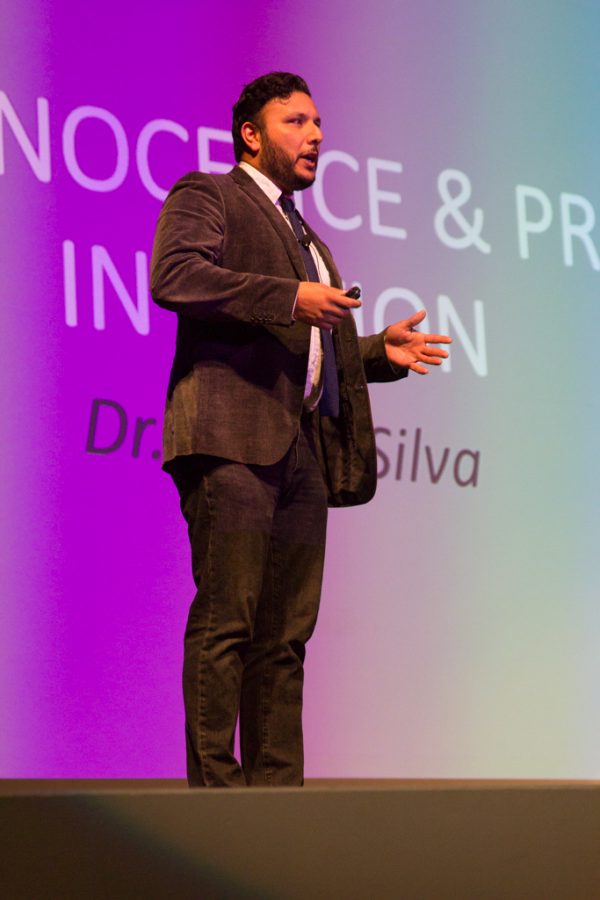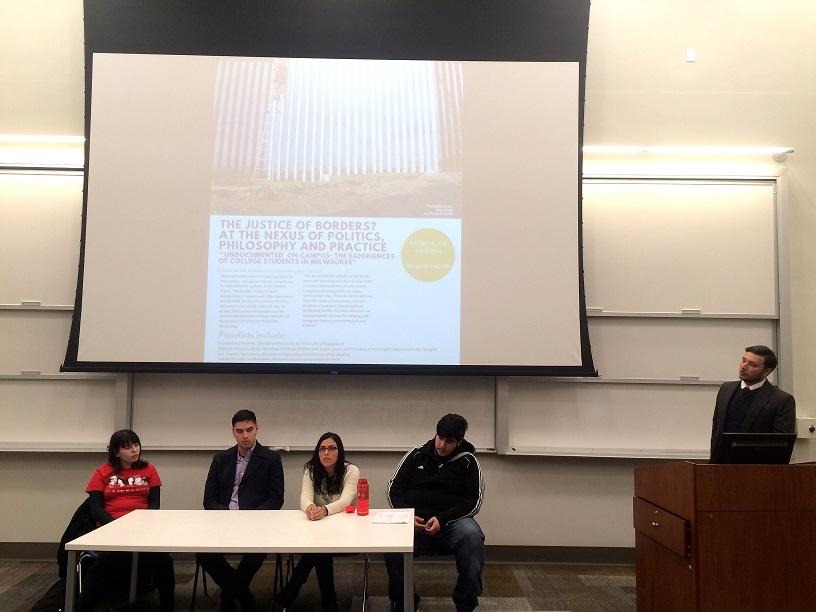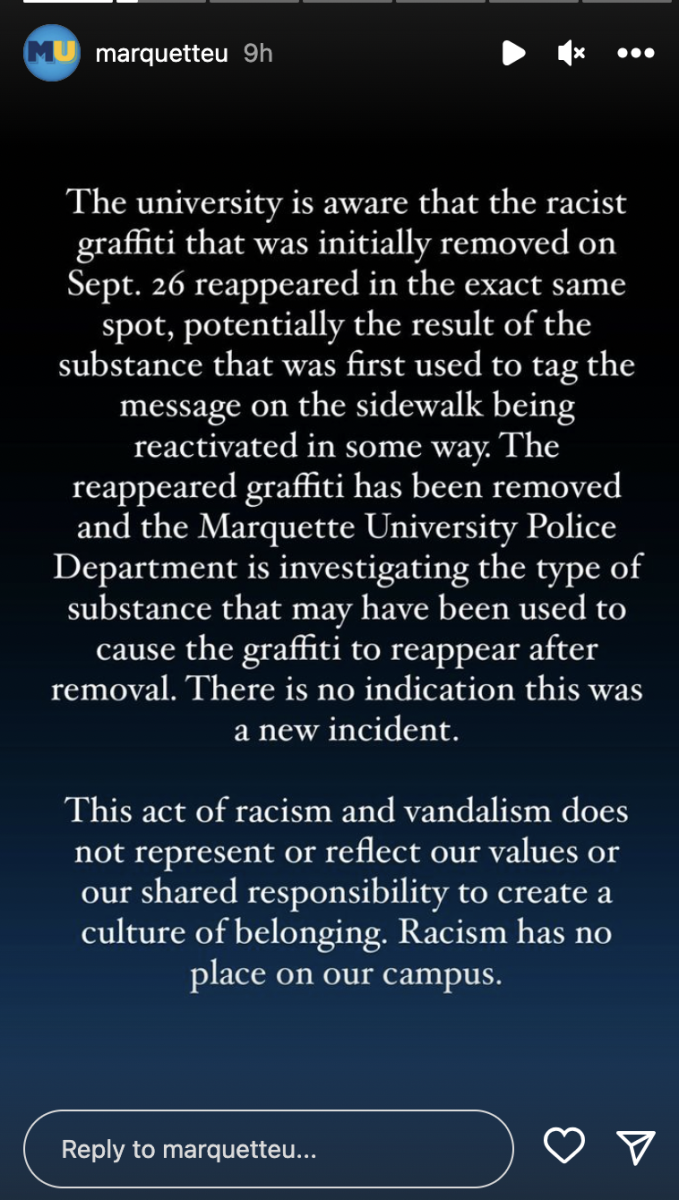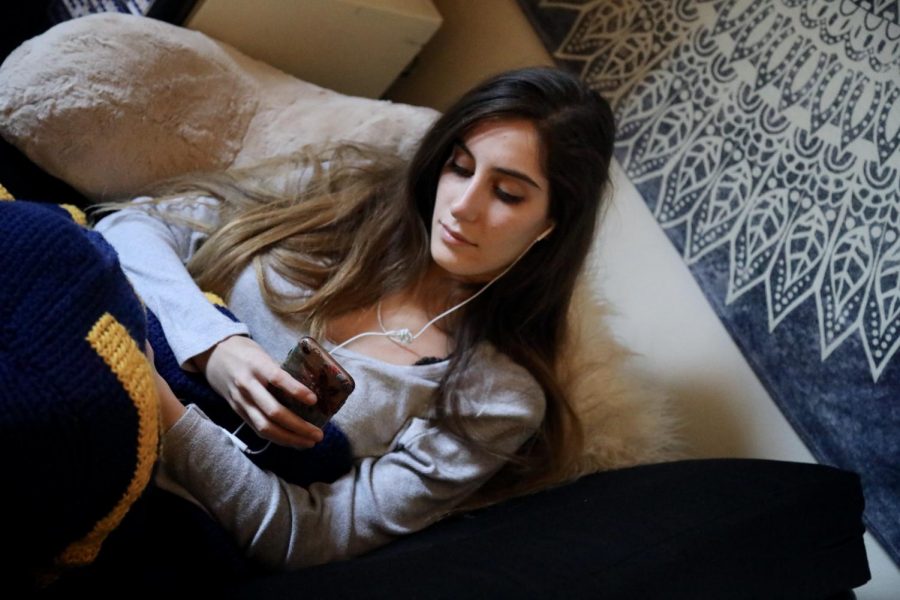“Never be offended by the truth,” Sheena Carey, internship coordinator and lecturer for the Marquette University College of Communication, said to a packed Varsity Theatre crowd on Wednesday night.
She was the last of several speakers that night who spoke to Marquette students during the panel discussion, “Privilege: Let’s Go There.”
The talk focused mostly on educating students and making them aware of racism and privilege in daily life. Many speakers also explained how students could address these issues.
The night began with Carey giving definitions of words like racism, privilege and white supremacy, among others. When defining race, she talked about people who claim to be “colorblind.”
“If you don’t see race, then you don’t necessarily see what’s happening,” Carey said.
Jeff Roche, psychologist and the group and career program coordinator in the Marquette Counseling Center, spoke about the emotional effects of racism. He said that talking about race and racism can often stir up feelings of anger, fear or guilt, but he asked the audience to “lean into discomfort.”
“Not only today, but also in the future, we want people to notice these emotional reactions and that they’re worthy of being explored,” Roche said. “And they don’t have to signal endpoints.”
Grant Silva, professor of philosophy, lectured on the idea of freedom and how race is tied to that.
“Race is one of the most high-caliber philosophical concepts ever,” Silva said. “It’s right there with the idea of God in the sense that here’s this idea that there are racial groups, and we graph it onto reality. The biological reality of race isn’t what we think it to be. Race is an idea that we superimpose on the real world.”
Joya Crear, assistant vice president of student affairs, talked to students about something she said many might not even think about: microaggressions.
Microaggressions, as defined by Crear, are “everyday verbal, nonverbal and environmental slights, snubs or insults, whether intentional or unintentional, which communicate hostile, derogatory or negative messages to target persons based solely upon their marginalized group membership.”
Crear described these microaggressions as being harmful and urged Marquette students to keep this in mind around campus.
“I saw the movie ‘I Too am MU,’ and yet I’m still experiencing microaggressions on this campus,” Crear said. “I’m experiencing microaggressions when I go anywhere.”
Carey then ended the set of five lectures by giving students advice on how to handle these topics. She said that it’s important to be respectful while still being curious. She encouraged students to find out what they don’t know and ask about it respectfully. She acknowledged that these conversations can be uncomfortable, but important.
“If you’re not uncomfortable in this type of conversation, you’re not having a difficult conversation,” Carey said.
The panelists then answered students’ questions on these topics and talked with students about specific ways they could approach this issue.
The talk was organized when two graduate students, Reece Hardy in College of Communication and Emily Yates in the College of Health Sciences reached out to Crear with the idea for this event.
“The purpose of this event was to better all of our understanding of the systemic issues of racism and to help others learn to recognize these kinds of issues,” Hardy said. “By addressing racial issues of prejudice and bias, individuals are then more aware of how to support each other and spark a change for betterment for society.”
Hardy and Yates have been working with Crear to organize this event since the beginning of the year.
“This was, I think, a great response to students conveying interest in wanting to take a deeper dive into these topics,” Renee Dowdy, assistant director of staffing and training of residence life, said.
Many students who are resident assistants or involved in Residence Life attended the panel discussion.
“The talk on privilege is important because it increases awareness of potentially harmful behaviors towards others, and in doing so, it helps to end the cycle of oppression and discrimination,” Gabby Newton, a sophomore in the College of Health Sciences, said.





